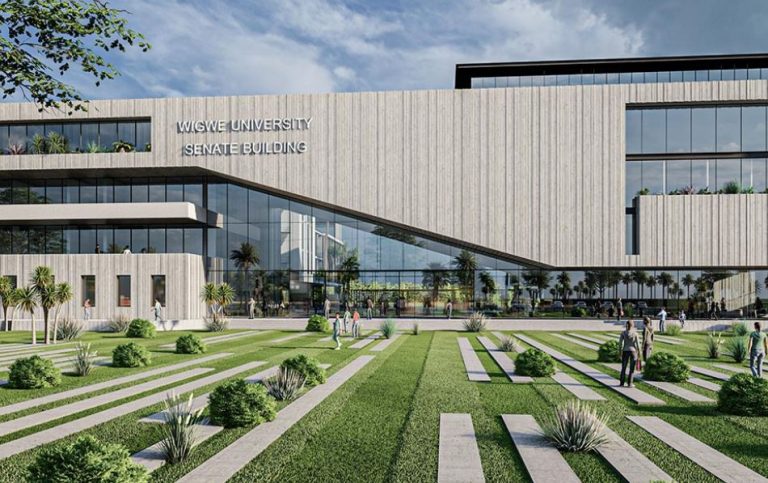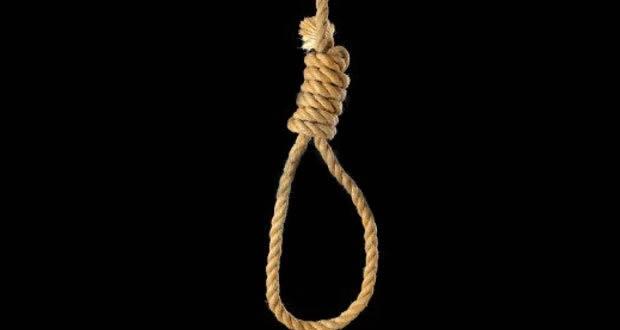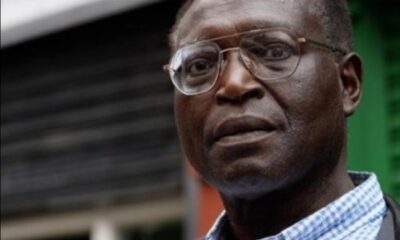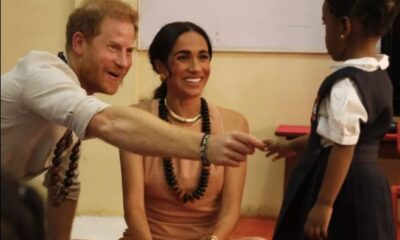Headline
Hope Rekindles For Nigerian Women With Dense Breasts
Published
9 months agoon
By
Editor
2 in 3 women unhappy with their breast size – Study
The acquisition of an Automated Breast Ultrasound, ABUS, device by Care Organisation Public Enlightenment, C.O.P.E. in collaboration with GE HealthCare weekend, offered hope for Nigerian women who may fall into the category of the 40 per cent of women with dense breasts – a strong and common risk factor for developing breast cancer.
Findings have showed that ABUS is transforming breast care from reactive to proactive and helping to detect breast cancers in dense tissue.
Clinical studies have demonstrated that ultrasound can detect tiny, node-negative, aggressive tumours that mammography misses. It is intended for use in the screening setting, specifically for dense breast imaging.
However, the Chief Executive Officer of COPE, Mrs. Ebun Anozie, said the procurement of the technology is targeted at scanning at least 200 women monthly and no fewer than 2,000 women annually.
READ ALSO: Protesters Storm APC Secretariat, Demand Two Ministerial Nominees For Kaduna
The machine, which would save as many women as possible from the clutches of the disease, also works with saline and silicone breast implants.
Speaking at the official launch in Lagos, Anozie said: “Do you know what this will do to a lot of women who come to us? It will enhance our screening. It will help us detect breast cancer early and we will be able to reach out to more women. This is the A game. It is going to help a lot of women, not forgetting the fact that men also have breast cancer, one in 100. It’s just that it is higher in women than men because we have breasts.
“We screen every third Saturday of every month. But, we have attended to about 100 persons before in one day because we have four machines and this is the fifth one. Women come here every third Saturday of the month from 10 am to 2 pm. ordinarily, it costs about N15,000 to go for screening. Here, our partners have made it free. What we want is to mitigate the mortality rate of breast cancer in Nigeria. We don’t need to die. Screening is the game because when something is detected early and treatments are given early, there is a high chance of surviving cancer.”
Speaking, the Chairman, Board of Trustees, C.O.P.E, Professor Frank Giwa-Osagie, said the technology was advancement in cancer management, adding that early diagnosis would prevent loss of lives.
READ ALSO: How Nigerian Air Force Aircraft En Route Niger Crashes
He said: “It’s been established that the chances of survival or cure in cancer depend heavily on early diagnosis and appropriate treatment. It is only when you diagnose that you can start treating, so any technology that can be applied to ensure accurate early diagnosis is a major step forward in cancer management. This ABUS technology is an advanced ultrasound for scanning the breast. It’s a major advancement not only for C.O.P.E but for women generally.
“We are very happy and grateful that we have this machine now in Lagos, and we are planning to scan at least 2,000 women per year. The whole procedure of scanning takes only 20 minutes and it is not inconvenient at all to the woman.”
On his part, Group Head, Strategic Brand Management, Mr Nduneche Ezurike, added: “Cancer ravages every family directly or indirectly. It is something that you are better off preventing than to cure. Historically, it predates the current-day Polaris Bank. For us as an organisation, it is ultimately about humanity. Health is an enterprise goal and we are focused on it in different ways. Having a state-of-the-art machine improves C.O.P.E’s capacity to do more in terms of reach and impact. This machine totally changes the game for them and it would help in attaining the objective, which is to reach as many women as possible.”
VANGUARD

Here are 15 most expensive universities in Nigeria as compiled by The PUNCH.
Wigwe University, Isiokpo, Rivers State, tops the list with a tuition fee of N12m, including accommodation fees.
Nile University, Abuja’s most expensive programme, Medicine and Surgery, costs N5.95m, according to the school’s website. Fees only cover tuition; accommodation is not included. Tuition for returning students is the same as stipulated in their admission letters.
Lead City University, also known as LCU, is a private university in Ibadan, Oyo State, Nigeria. Their MBBS Medicine and Surgery programme, according to the school’s website, costs N5.5m per session. Other expensive programmes are their Nursing, Dentistry, and Pharmacy programmes which cost N2.5m each per session.
Afe Babalola University, founded by legal luminary, Chief Afe Babalola (SAN), is another expensive university in the country. First-year students of Medicine are to pay N4,567,500 while final-year students will pay a total of N5,586,000. This excludes accommodation which costs N850,000 for the Super Deluxe one-person room, and other fees [Students Association fees, medical screening, ABUAD souvenir (fresh students)] which cost around N70,000.
READ ALSO: Economic Hardship: Pastor Suspends Collection Of Offerings Church[VIDEO]
Pan-Atlantic University, Lagos, charges between N3.9m to N4.4m for its most expensive programme, B.Eng Mechatronics. The fee covers reading materials, and academic facilities, among others. This does not include the non-refundable acceptance fee of N250,000 to be paid on admission.
Igbinedion University, Okada, Edo State, is Nigeria’s first private university, known for its commitment to quality education and academic excellence. According to the school’s website, final-year medical students can pay as much as N4m as tuition. This excludes other sundry levies.
Bowen University, Iwo, Osun State, a private Baptist Christian Nigerian university located at Iwo in Osun State, Nigeria, is also another university with expensive fees. It is affiliated with the Nigerian Baptist Convention. According to its website, the most expensive programme, the Medicine and Surgery (pre-clinical) programme, costs around N3.8m. Other Fees of N84,000 per session are made up of BBSF – N4,000, Entrepreneurship and Soft Skills – N20,000, Internet Access and Portal Management – N40,000, and Health Care – N20,000.
All new and returning students are required to pay N20,000 and N10,000 respectively to Bowen University Parents Association Forum in the first semester and present a receipt of the same for clearance. Also, 70 per cent payment of school fees is expected to be paid at the commencement of the session while the balance of 30 per cent is expected to be paid at the commencement of the second semester.
READ ALSO: Soludo Sacks 21 Anambra Transition Committee Chairmen
American University of Nigeria, Adamawa State, founded by former Vice President, Atiku Abubakar, in Yola, the capital of his home state of Adamawa, North-East Nigeria, charges N3.511m as its highest fee for its undergraduate engineering students. This excludes accommodation which costs N432,000 for its triple-room apartment, and feeding which costs N813,960 for 21 meals.
Benson Idahosa University, Benin City, Edo State, is a private, Christian university. Previously named Christian Faith University, it was renamed in honour of the late Archbishop Benson Idahosa, a charismatic Pentecostal minister from Benin City, Nigeria, and is said to reflect his evangelical beliefs. Its Medicine and Surgery programme costs between N3.3m and N3.5m per session, according to its website. This is closely followed by its Nursing, Medical Laboratory Science, and Law programmes which cost N1.8m, N1.5m, and N1.2m respectively per session.
Babcock University, a private Christian co-educational Nigerian university owned and operated by the Seventh-day Adventist Church in Nigeria, is located at Ilishan-Remo, Ogun State, Nigeria, equidistant between Ibadan in Oyo State and Lagos. The most expensive programme, which is the LL.B in Law programme, costs N1,539,990, according to the school’s website. This excludes feeding which costs N523,600 (two-meal option) or 785,400 (three-meal option).
Redeemer’s University is a private university in Ede, Osun State, and prides itself as one of the most cost-effective, top private universities in Nigeria. Their fee structure, according to their website, is flexible and can be paid in three installments. The most expensive programme, which is their undergraduate Law programme, costs N1.447m followed by their Bachelor in Nursing programme which costs N1.1m per session.
READ ALSO: Judicial Misconduct: NJC Sets Up Panel To Probe 35 Petitions Against
Caleb University, Imota, Lagos, is a private university that is also one of the most expensive in the country. The highest fee, paid by law undergraduates, costs N1.4m, according to the fee tracker available on its website. This excludes matriculation fees, ICT and global certification, and parents forum which cost N65,000 in total.
Ajayi Crowther University, founded in 2005, is a private faith-based university located in Oyo State, Nigeria. Its Law programme costs N1.7m while its Nursing programme costs N1.4m.
Joseph Ayo Babalola University is a private Nigerian university located in Ikeji-Arakeji, Osun State, Nigeria, established in 2004 by the Christ Apostolic Church Worldwide. The most expensive programmes are the BSc Nursing, Medical Laboratory Technology, and Law programmes which cost between N1.3m and N1.5m each per session.
Covenant University, Otta, Ogun State, affiliated with the Living Faith Church Worldwide, is a member of the Association of Commonwealth Universities, Association of African Universities, and National Universities Commission, and is one of the most expensive universities in the country. Most of the university’s programmes range between N1.1m to N3m, according to the university’s website. This includes feeding but excludes accommodation.
Notable mentions include Achievers University, Novena University, Adeleke University, Rhema University, Lagos State University, Obong University, and Oduduwa University.
Headline
JUST IN: Helicopter Carrying Iran’s President Crashes
Published
4 hours agoon
May 19, 2024By
Editor
A helicopter carrying Iranian President Ebrahim Raisi has been involved in an incident while he was visiting neighboring Azerbaijan, Iran’s semi-official Tasnim news agency reports.
“Some of the president’s companions on this helicopter were able to communicate with Central Headquarters, raising hopes that the incident could have ended without casualties,” it added.
It is unclear what the exact status is of Raisi’s helicopter.
READ ALSO: Economic Hardship: Pastor Suspends Collection Of Offerings Church[VIDEO]
The helicopter was part of a convoy of three helicopters. Two of those helicopters were carrying ministers and officials who arrived at their destination safely, according to Tasnim.
“Seyyed Mohammad-Ali Al-Hashem, Tabriz’s Friday Prayer Imam, and Foreign Minister Hossein Amirabdollahian were also reportedly on the helicopter with the president,” Tasnim said on X.
More Details Later…

Iran on Saturday hanged at least seven people, including two women, while a member of its Jewish minority is at imminent risk of execution as the Islamic Republic further intensified its use of capital punishment, an NGO said.
Parvin Mousavi, 53, a mother of two grown-up children, was hanged in Urmia prison in northwestern Iran along with five men convicted in various drug-related cases, the Norway-based Iran Human Rights (IHR) said in a statement.
In Nishapur in eastern Iran, a 27-year-old woman named Fatemeh Abdullahi was hanged on charges of murdering her husband, who was also her cousin, it said.
IHR says it has tallied at least 223 executions this year, with at least 50 so far in May alone. A new surge began following the end of Persian New Year and Ramadan holidays in April, with 115 people including six women hanged since then, it said.
READ ALSO: Burkina Faso, Mali, Niger Finalise Regional Alliance Project
Iran carries out more recorded executions of women than any other country. Activists say many such convicts are victims of forced or abusive marriages.
Iran last year carried out more hangings than in any year since 2015, according to NGOs, which accuse the Islamic republic of using capital punishment as a means to instill fear in the wake of protests that erupted in autumn 2022.
“The silence of the international community is unacceptable,” IHR director Mahmood Amiry-Moghaddam told AFP.
“Those executed belong to the poor and marginalised groups of Iranian society and didn’t have fair trials with due process.”
READ ALSO: Israeli Leaders Disagree Over Post-war Gaza Governance Amid US Pressure
‘Killing machine’
IHR said Mousavi had been in prison for four years. It cited a source as saying she had been paid the equivalent of 15 euros to carry a package she had been told contained medicine but was in fact five kilos of morphine.
“They are the low-cost victims of the Islamic Republic’s killing machine, which aims at instilling fear among people to prevent new protests,” added Amiry-Moghaddam.
The group meanwhile said a member of Iran’s Jewish community, which has drastically reduced in numbers in recent years but is still the largest in the Middle East outside Israel, was at imminent risk of execution over a murder charge.
Arvin Ghahremani, 20, was convicted of murder during a street fight when he was 18 and is scheduled to be executed in the western city of Kermanshah on Monday, it said, adding it had received an audio message from his mother Sonia Saadati asking for his life to be spared.
READ ALSO: 50-year-old Man Dies While Watching Football Match In Lagos Bar
His family is seeking to ask the family of the victim to forgo the execution in line with Iran’s Islamic law of retribution, or qesas.
Also at risk of execution is Kamran Sheikheh, the last surviving member of a group of seven Iranian Kurdish men who were first arrested between early December 2009 and late January 2010 and later sentenced to death for “corruption on earth” over alleged membership of extremist groups, it said.
Six men convicted in the same case have been executed in the last months almost one-and-a-half decades after their initial arrest, the last being Khosro Besharat who was hanged in Ghezel Hesar prison outside Tehran this week.
There has been an international outcry meanwhile over the death sentence handed out last month to Iranian rapper Toomaj Salehi, seen by activists as retaliation for his music backing the 2022 protests. His lawyers are appealing the verdict.
AFP

Hilton Expands Presence in Nigeria With Two New Hotel Signings

15 Most Expensive Nigerian Universities

Gunmen Kidnap A’Ibom Monarch
Trending

 Entertainment5 days ago
Entertainment5 days agoVIDEO: Drama As Portable Jumps Gate To Evade Police Arrest

 Entertainment5 days ago
Entertainment5 days agoPolice Arrest Portable

 News4 days ago
News4 days agoAbure Bows To Pressure, Begs NLC President For Reconciliation

 Headline3 days ago
Headline3 days agoFG, States, LGs Share N1.2tn In May

 News4 days ago
News4 days agoSanwo-Olu’s Deputy Chief Of Staff Is Dead

 Headline4 days ago
Headline4 days agoPolice Give Tips On How To Report Erring Officers

 News3 days ago
News3 days agoUK Denies 74-year-old Mam Permanent Residency After 42 Years Stay

 News3 days ago
News3 days agoLady Reveals Three Ways To Know If A Girl’s Waist Beads Is Not ‘Ordinary’

 Headline4 days ago
Headline4 days agoKudos As Nigeria Gains Additional Territory ‘Five Times The Size Of Lagos’

 Headline3 days ago
Headline3 days agoHarry & Meghan: Outrage As UK Journalist Says Nigerians Are Nazis



























